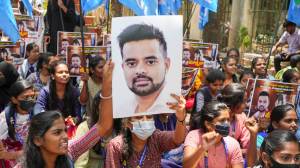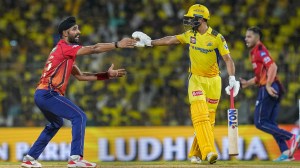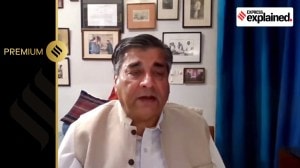- India
- International
Chhoti Si Baat
Basu Chatterjee’s films starred the aam aadmi and aam aurat. They made middle-class India visible on the big screen.
 Along with Hrishikesh Mukherjee and Basu Bhattacharya, Chatterjee created a road map to celebrate ordinariness, humaneness, empathy.
Along with Hrishikesh Mukherjee and Basu Bhattacharya, Chatterjee created a road map to celebrate ordinariness, humaneness, empathy.
The arrival of Basu Chatterjee on the Hindi film firmament, with the 1969 Sara Aakash upended the elements popular cinema was packed with: Loud dialogue, high-pitched melodrama, and characters who lived in la-la land. His films were rooted in the here and now, and were about people like you and me.
Along with Hrishikesh Mukherjee and Basu Bhattacharya, Chatterjee created a road map to celebrate ordinariness, humaneness, empathy. And he invested his middle-of-the-road cinema with such zest and joy that it spilled over. There were sombre moments, too, but his films never drowned in faux sentiment, they made their point with a lingering lightness of touch. Some of his best loved films ( the ’74 Rajnigandha,’76 Chhoti Si Baat’,’79 Baaton Baaton Mein) dealt with issues impacting a middle-class India which had never been visible on the big screen before. Tongue-tied, shy lovers, the sparkle of newly-independent working women, the rough and tumble of office politics, buses and trains that ran late — all was gently-observed grist to Chatterjee’s mill, and the bustling ’70s was as much marked by his cinema, wonderfully fronted by an actor who exuded a special man-next-door ordinariness, as it was by the films of a lanky, towering volcano.
If Amitabh Bachchan’s angry heroes railed against the system, and used their fists in retaliation, Amol Palekar’s self-effacing gents spoke up for the men who wore their thin, tentative moustaches and large collared bush-shirts with growing confidence, and for the ladies they loved. Some of Chatterjee’s not so well-remembered titles like Chameli Ki Shaadi, Kamla Ki Maut, and Swami, touched upon class and caste, pre-marital sex and suicide, marital discord and other tricky subjects. But it was all done in the distinctive style of a man who celebrated life in all its hues, layered with the songs still hummed. That’s what’s called timeless.
40 Years Ago
EXPRESS OPINION
More Explained
May 02: Latest News
- 01
- 02
- 03
- 04
- 05































